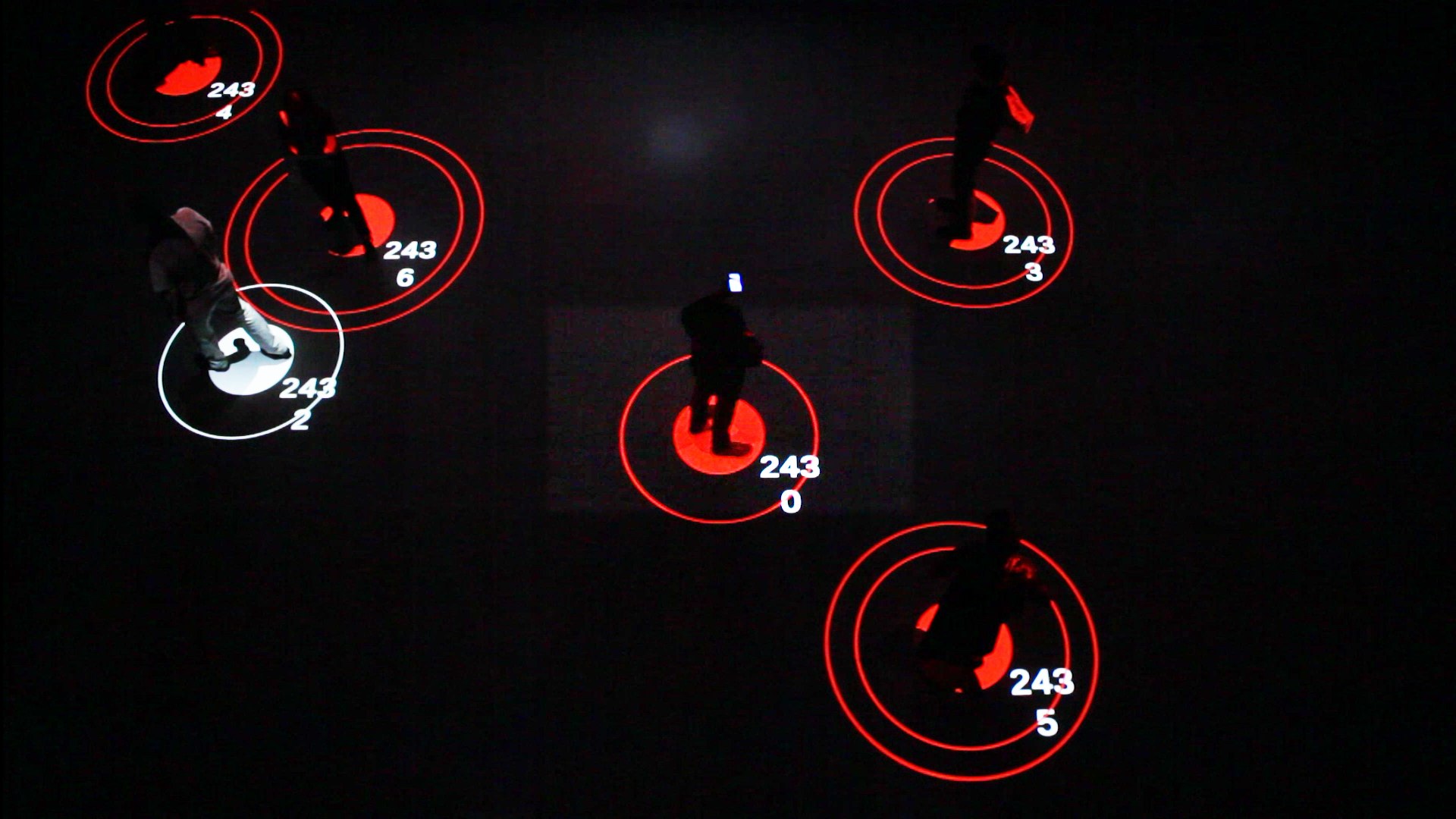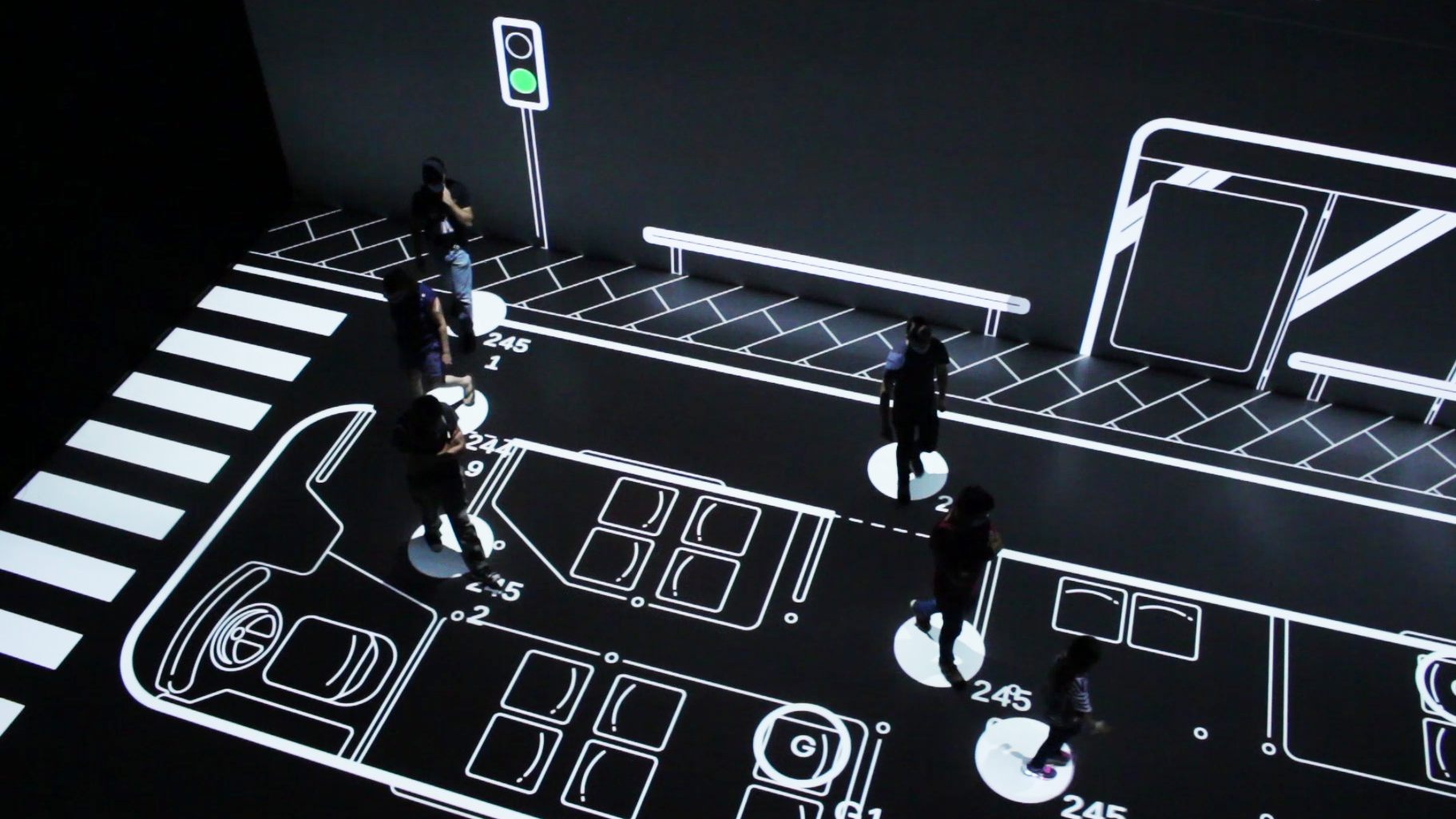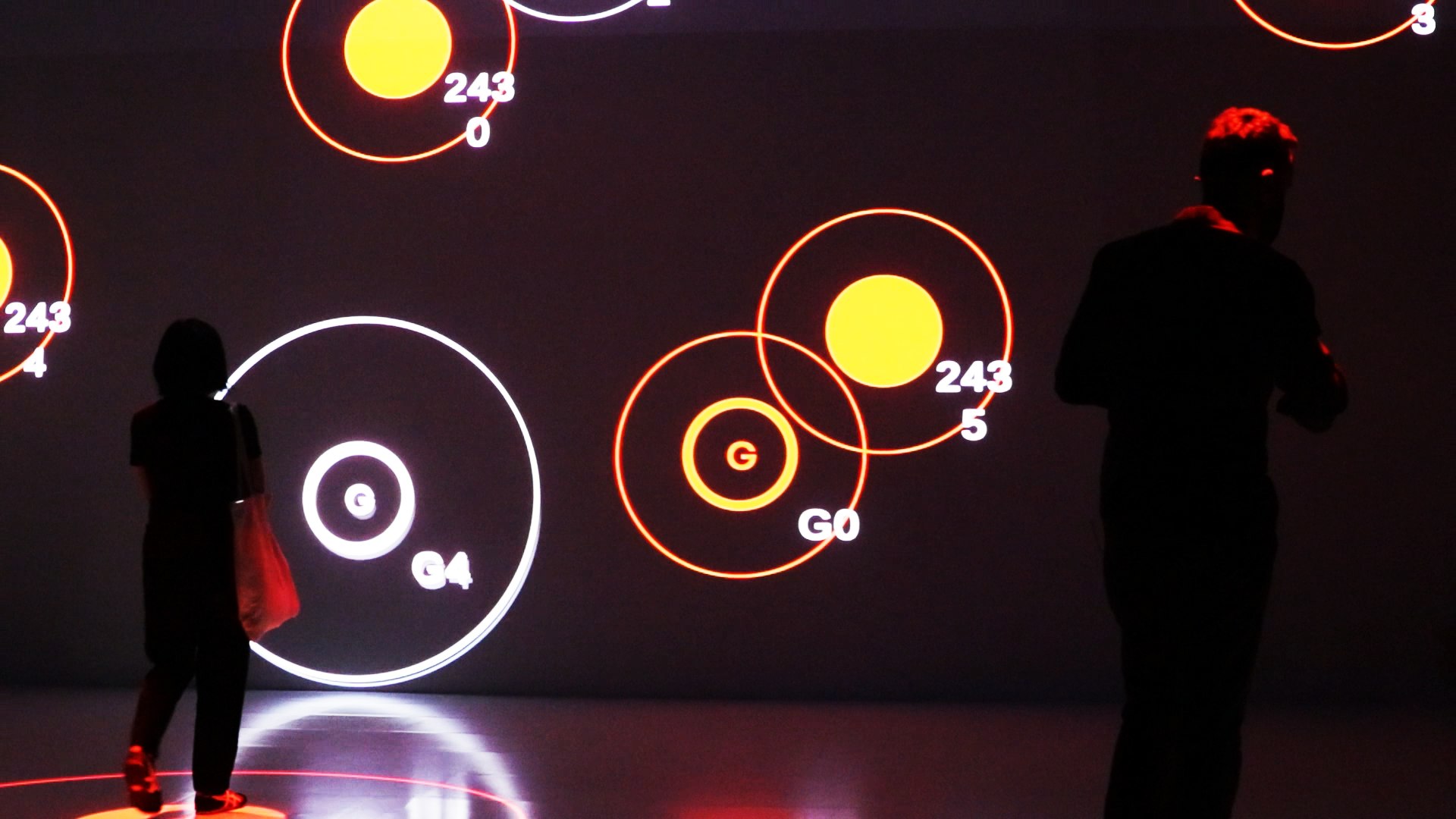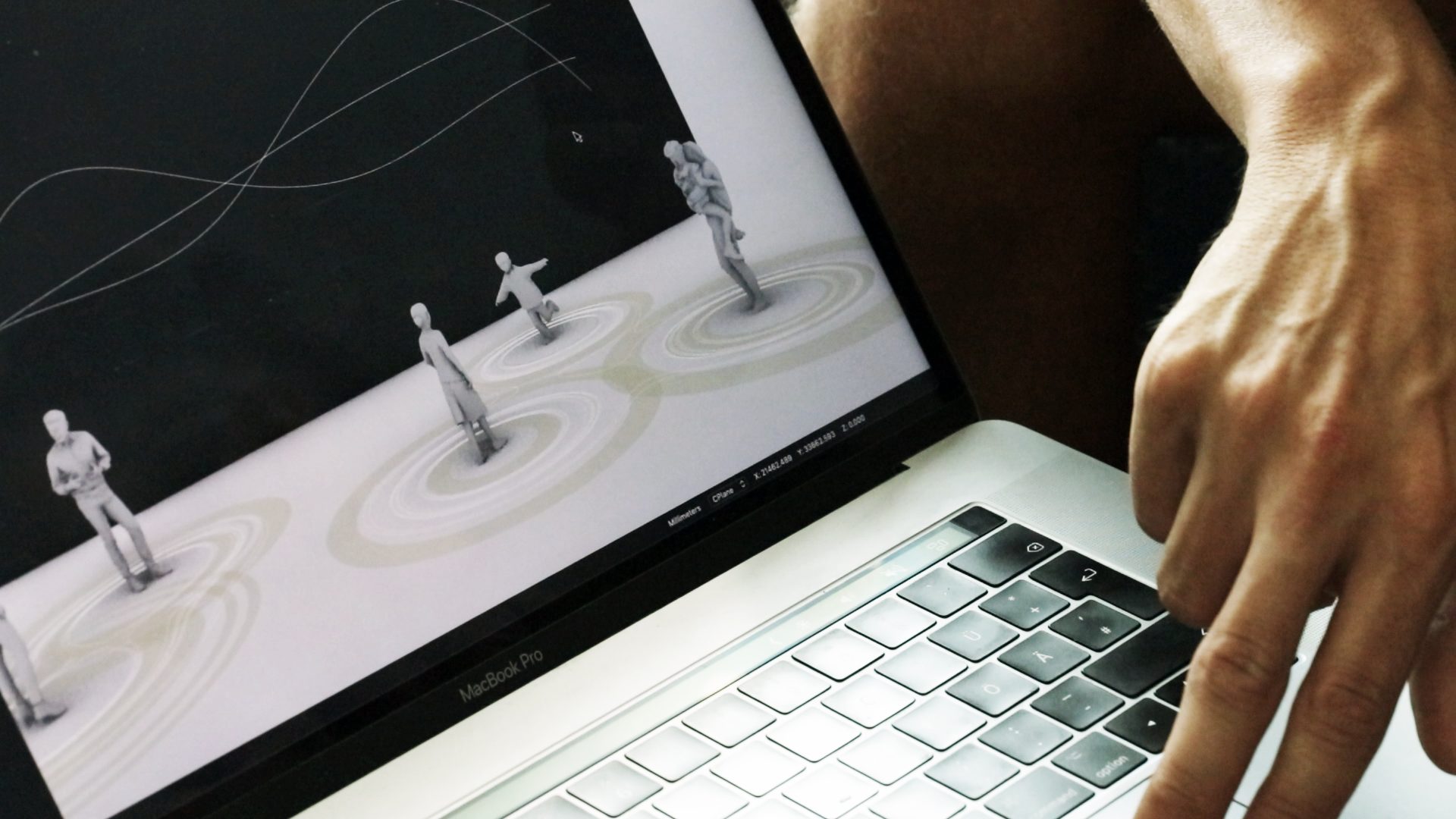With immersive VR simulations in the VR environment of Deep Space 8K, the Ars Electronica Futurelab aims to vividly convey scientific knowledge and inspire reflection and discussion: Deepandemia visualizes the COVID-19 infection chain in simulated everyday environments to virtually test how individual behavior can affect the worldwide pandemic.
The COVID-19 crisis serves as an illustrating example of how a new sense of responsibility, individual behavior and societal collaboration can change the world and has taught us a lot about the transmission of unknown diseases and global chains of infection. Simple measures such as social and physical distancing, quarantine, or wearing masks have been proven to have a major impact on the spread of the COVID-19 virus. Reason enough to take a closer look at the effect of consistent measures and the transmission of viruses in relation to our collective behavior.
For this purpose, a new application was developed for the virtual environment of Deep Space 8K, Ars Electronica’s 16×19-meter VR showcase stage, which visualizes the spread radii and infection chains of COVID-19 viruses within simulated everyday environments. Whether in a supermarket or on public transportation: Here, participants can virtually test the impact of their personal attitude on the global pandemic.
Based on parameters that are set beforehand – such as the number of “infected persons” in the virtual space or hygienic conditions, such as masks, hand washing or opening windows – a concrete scenario is created at the beginning of the game. Without knowing what conditions they will face in the room, the participants start in the simulation. The transfer process caused by the participant’s actions is made visible only after a scene has been completed, so a constructive reflection of one’s own impact can thus arise. In this playful way, Ars Electronica Futurelab aims to bring scientific knowledge into the center of society and inspire people to think, to discuss and to act – the pandemic might stay with us for a while longer, after all.
With its stereoscopic wall and floor projections, the Ars Electronica Center’s Deep Space 8K not only serves as an immersive VR environment for the presentation of high-resolution 3D worlds. In this globally unique multi-user environment, laser tracking offers a wide range of possibilities for spatial interaction. To determine the position of a moving subject and to recognize movement patterns, the local positioning system pharus was developed. Additionally to its insensitivity to massive exposure to large groups, it can simultaneously detect a correspondingly large interaction space. pharus uses laser scanners mounted around the interaction area. Multiple perspectives reduce the effects of mutual shading. Up to 30 people can thus move simultaneously in the scalable space. Measuring the time of flight, the distance to the reflecting object is calculated. This similarity to radar has coined the term “LiDAR” (Light Detection and Ranging). Should one or more sensors lose line of sight, others can “take over”. pharus can even predict the course of movement for a certain time and thus compensate for failures. In this way, visitors can immerse themselves in simulations like Deepandemia in real time and experience virtual reality on a realistic scale.
Climate change, globalization, waste of resources and the COVID- 19 crisis are just a few of the critical future issues that the Ars Electronica Futurelab think-and-do tank deals with day by day in order to develop new prototypes for a better future. That’s why the Ars Electronica Futurelab Ideas Expedition, an internal competition, focuses on global challenges that might continue to accompany us in the future. With its immersive VR simulations in Deep Space 8K, Ars Electronica Futurelab aims to vividly convey scientific knowledge and inspire reflection and discussion in the broad public: Deepandemia thus visualizes COVID-19 infection chains in interactive 3D-simulations of everyday environments. Participants can virtually test the impact of their personal attitude on the global crisis, to experience for themselves how their individual decision can make a difference.
Credits
Peter Freudling, Nicolas Naveau, Johannes Pöll, Julian Zauner
Deepandemia /DeepChanges is a winner project of the 2020 Ars Electronica Futurelab Ideas Expedition




